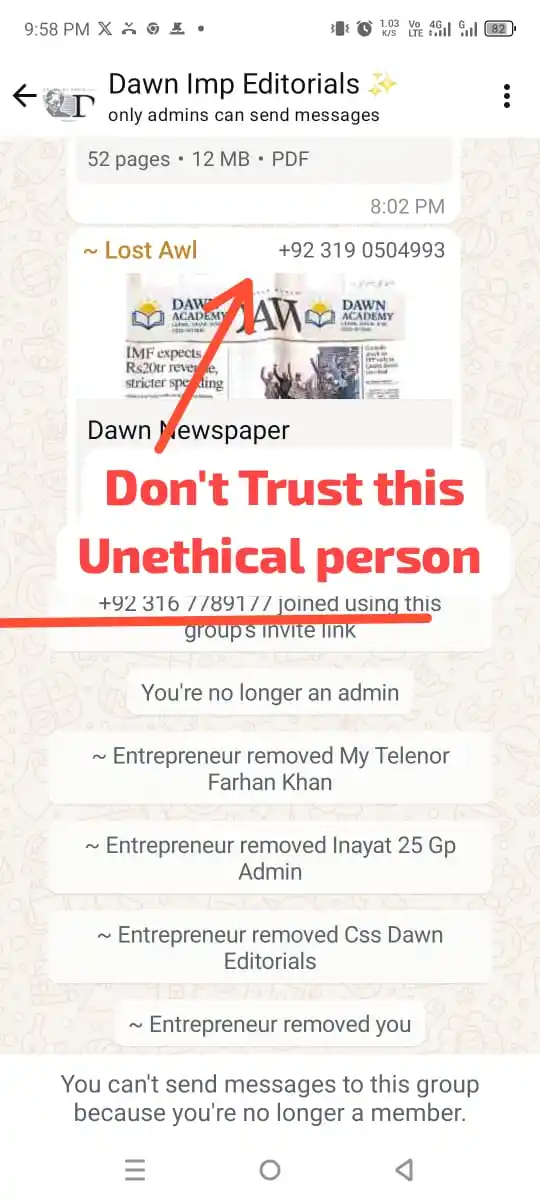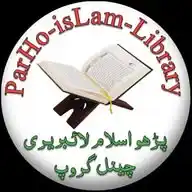
CSS MCQS - Pakistan's largest MCQs Website for CSS & PMS
9.0K subscribers
About CSS MCQS - Pakistan's largest MCQs Website for CSS & PMS
💫Stay ahead in your CSS, PMS, and competitive exams preparation with CSS MCQs on WhatsApp! Pakistan's largest MCQs website for CSS & PMS brings you Daily MCQs, Dawn news Summaries, Quizzes , Solved Past Papers and Valuable insights to boost your knowledge. Join us to excel in your academic and career pursuits. _Follow for a brighter future now!_ *Hold Click on the Link* to Copy and Share it with your *Friends and Family members* Now!!! https://whatsapp.com/channel/0029Va7tT3o35fLnJeFbpS2y Get *ALL the IMPORTANT Articles* for CSS & PMS here 🗒 https://cssmcqs.com/dawn-editorials-articles-summary-for-students-pdf-download/
Similar Channels
Swipe to see more
Posts

# **Detailed SUMMARY of the article “Seat 1C: A Second Chance” by Zafar Mirza, Published in Dawn on May 16th, 2025:** Zafar Mirza reviews **Zafar Masud’s book, *Seat 1C***, which recounts Masud’s survival of the **PK-8303 Airbus 320 crash** on May 22, 2020, in Karachi, where **97 of 99 passengers** died. Masud, then **Bank of Punjab CEO**, survived after crashing through a building’s rooftop onto a car, alongside one other survivor, Zubair. The book distills **10 lessons** from this ordeal, each explored in chapters titled **‘Arrogance’, ‘Dues’, ‘Goodness’, ‘Sincerity’, ‘Miracles’, ‘Willpower’, ‘Rituals’, ‘Bold Steps’, ‘Communication’,** and **‘Legacy’**. The crash, caused by an **overconfident pilot** ignoring air traffic control and a **belly landing** due to unextended landing gear, reflects **systemic negligence** and **institutional decay** in Pakistan’s aviation sector, as it was the **sixth crash in a decade**. Masud describes a pre-crash moment where a voice assured his survival, prompting reflection on **emotional dues** to loved ones, reshaping his life’s priorities. Rescued by locals from **Model Colony**, he highlights **human goodness** in crises. In hospital, battling **survivor’s guilt**, **burns**, and **fractures**, Masud sought **psychological counseling**, challenging mental health stigma, and later joined campaigns like **Milkar**. His **willpower** aided recovery, and he boldly retook the same flight four months later. Masud attributes his survival to his **parents’ prayers**, fueling a quest for meaning. He critiques the chaotic **DNA identification** process for victims’ families, urging better emergency protocols. Committed to **legacy**, Masud, son of actor **Munawar Saeed**, supports **literary festivals** and established the **Zafar Masud Foundation** for **passenger safety** and poverty alleviation. Mirza praises the book as a **cathartic** tale of **hope, resilience**, and societal critique, blending personal and systemic insights. # **Easy/Short SUMMARY**: Zafar Masud’s book **Seat 1C** recounts his survival of the **2020 PK-8303 crash** in Karachi, where **97 of 99 died**. One of two survivors, Masud shares **10 lessons** on **arrogance, goodwill, willpower**, and **legacy**, critiquing **systemic negligence** in Pakistan’s aviation. Rescued by locals, he overcame **survivor’s guilt** with counseling, retook the same flight, and founded the **Zafar Masud Foundation** for safety and poverty relief. Mirza calls it a **hopeful, cathartic** story. # **SOLUTIONS of The Problem**: ## *1. Reform Aviation Oversight** Strengthen **CAA** regulations to enforce pilot training and compliance with air traffic control. ## *2. Upgrade Air Traffic Systems** Equip airports with advanced monitoring to detect issues like unextended landing gear. ## *3. Enhance Emergency Protocols** Streamline **DNA identification** and victim support processes for crash aftermaths. ## *4. Combat Systemic Arrogance** Audit aviation institutions for **negligence** and enforce accountability at all levels. ## *5. Promote Mental Health Support** Integrate **psychological counseling** into post-crash recovery plans, reducing stigma. ## *6. Improve Crash Investigations** Establish independent bodies to probe crashes, addressing **six crashes in a decade**. ## *7. Support Community Resilience** Train locals, like **Model Colony rescuers**, for emergency response roles. ## *8. Fund Safety Initiatives** Expand **Zafar Masud Foundation** programs for **passenger safety** with government backing. ## *9. Address Illegal Constructions** Demolish high-rise buildings near airports, like in **Model Colony**, to reduce crash risks. ## *10. Raise Public Awareness** Use **Milkar**-style campaigns to educate on mental health and aviation safety. # **IMPORTANT Facts and Figures Given in the article**: * **PK-8303** crashed on **May 22, 2020**, near **Jinnah International Airport**, killing **97 of 99** aboard. * **Zafar Masud**, in **seat 1C**, survived with **Zubair**, landing on a **Suzuki Cultus** after hitting a building. * The crash was caused by an **overconfident pilot** ignoring air traffic control and a **belly landing** due to unextended landing gear. * It was Pakistan’s **sixth plane crash** in a decade, reflecting **systemic negligence**. * Masud suffered **burnt back**, **broken hand**, and **splintered knee**, battling **survivor’s guilt**. * Locals (**Waqas, Rizwan, Tahir, Farhan**) from **Model Colony** rescued survivors. * Masud sought **psychological counseling** and supports **Milkar** mental health campaign. * He retook the same flight in **seat 1C** four months later. * Masud, son of **Munawar Saeed**, founded the **Zafar Masud Foundation** for **passenger safety** and poverty alleviation. * The book has **10 chapters**: **Arrogance, Dues, Goodness, Sincerity, Miracles, Willpower, Rituals, Bold Steps, Communication, Legacy**. # **IMPORTANT Facts and Figures out of the article**: * **PK-8303** was a **PIA Airbus A320** (AP-BLD) from Lahore to Karachi, crashing **1,340 meters** from the runway (*Aviation Safety Network*, 2020). * The crash killed **97 passengers** and **1 child on the ground** in **Model Colony** (*BBC*, May 22, 2020). * The pilot’s error caused **both engines to fail** after scraping the runway, per **CAA report** (2021). * **18–20 illegal high-rises** in **Model Colony** violated aviation safety norms, per **Sindh Building Control Authority** (2020). * Pakistan’s aviation sector faced **$100 million** in losses from PK-8303, per **IATA** estimates (2020). * **DNA testing** took **2–3 weeks** for victim identification, delaying closures, per **Edhi Foundation** (2020). * **PIA** was banned from **EU airspace** for six months post-crash due to safety concerns (*Reuters*, June 2020). * **Mental health stigma** affects **70% of Pakistanis** seeking counseling, per **Pakistan Psychological Association** (2024). # **MCQs from the Article**: ### 1. **How many people survived the PK-8303 crash?** A. One **B. Two** C. Three D. None ### 2. **What caused the PK-8303 crash, per the article?** A. Weather conditions **B. Pilot negligence and unextended landing gear** C. Mechanical failure D. Terrorist attack ### 3. **What is the title of Zafar Masud’s book?** A. Miracles of Survival **B. Seat 1C** C. Survivor’s Guilt D. Legacy of Hope ### 4. **Which campaign does Masud support for mental health?** A. Edhi Foundation **B. Milkar** C. Zafar Masud Foundation D. PIA Recovery ### 5. **What did Masud attribute his survival to?** A. His willpower **B. His parents’ prayers** C. Medical intervention D. Rescuers’ efforts # **VOCABULARY**: 1. **Strapped** (بندھا ہوا) – Secured or fastened 2. **Rammed** (ٹکرایا) – Crashed or struck forcefully 3. **Candidly** (صاف گوئی سے) – Openly and honestly 4. **Gleaned** (جمع کیا) – Gathered or extracted 5. **Ordeal** (اذیت) – Painful or difficult experience 6. **Systemic** (نظامی) – Relating to an entire system 7. **Negligence** (غفلت) – Failure to take proper care 8. **Permeated** (سرایت کیا) – Spread throughout 9. **Frenzied** (پاگل پن) – Wildly excited or uncontrolled 10. **Survivor’s guilt** (بچ جانے کا جرم) – Guilt felt by survivors of a tragedy 11. **Cumbersome** (بوجھل) – Slow or complicated 12. **Wracked** (تکلیف میں) – Tormented or distressed 13. **Contemplating** (غور کرنا) – Thinking deeply about 14. **Sojourns** (قیام) – Temporary stays 15. **Stigma** (داغ) – Mark of shame or disgrace 16. **Catharsis** (تطہیر) – Emotional release or purification 17. **Aftershock** (جھٹکوں کا سلسلہ) – Lingering effect of a traumatic event 18. **Resilience** (لچک) – Ability to recover from adversity 19. **Arrogance** (تکبر) – Excessive pride or self-importance 20. **Legacy** (ورثہ) – Something handed down or left behind --- 📢 **Attention Please!** We appreciate your commitment to acquiring knowledge through our summaries. Please be reminded not to remove the attribution label affixed to this article. It is crucial to acknowledge the source and the effort invested in creating this summary. We discourage any unauthorized distribution without proper credit. Thank you for your understanding and cooperation. 🔍 ⚡ **Explore More Summaries, Solutions, and Vocabulary Meanings** 💡 Join our WhatsApp Channel for timely and comprehensive summaries of the latest articles, along with well-crafted solutions and helpful vocabulary meanings. Click the link below to join now 🔗 [Dawn Article Summaries](https://cssmcqs.com/dawn-editorials-articles-summary-for-students-pdf-download/) **WhatsApp Channel Link**: [https://whatsapp.com/channel/0029Va7tT3o35fLnJeFbpS2y](https://whatsapp.com/channel/0029Va7tT3o35fLnJeFbpS2y) Seat 1C: a second chance Zafar Mirza Published May 16, 2025 STILL strapped to his plane seat, unconscious and falling from a crashing Airbus 320, he rammed into the rooftop of a three-floor building before landing on the bonnet of a Suzuki Cultus. Ninety-seven out of the 99 people on board lost their lives. Zafar Masud is one of the two survivors. Recently, he wrote a book revisiting this horrific near-death experience and his miraculous survival. He has candidly and thoughtfully shared what he has been through, and how it has changed him and his perspective on life. The book largely consists of 10 lessons gleaned from this extraordinary experience. Each lesson has a dedicated chapter. In describing these lessons, he has, through the lens of his personal ordeal, explored systemic problems, the goodness and arrogance of human beings, and evolving worldviews. He has drawn on history, literature, research and his perspectives on personal and societal development. The titles of the 10 chapters reflect the approach: ‘Arrogance’; ‘Dues’; ‘Goodness’; ‘Sincerity’; ‘Miracles’; ‘Willpower’; ‘Rituals’; ‘Bold Steps’; ‘Communication’; and ‘Legacy’. We all remember the breaking news about the crash of PK-8303 on May 22, 2020, as the plane approached Jinnah International Airport in Karachi. It was the last Friday of Ramzan and Eid was approaching. The plane crashed into the high and illegally constructed buildings of Model Colony adjacent to the airport. Zafar Masud, president and CEO of the Bank of Punjab, was seated in aisle seat 1C, now the name of his book. It was an entirely manmade disaster. An overconfident and negligent pilot tried to descend sharply from an unusual height close to the airport, apparently disregarding repeated advice from air traffic control to descend gradually by taking another round. The staff in aerodrome control had failed to notice that the plane’s landing gear was not extended. The plane descended to make a belly landing, scraped the ground and tried to go up again; it was too late, its fate was sealed a mile away from the runway. The pilot and ground staff’s attitude was a reflection of the “systemic arrogance” and “large-scale institutional decay” that has permeated all levels of our society. This was the sixth plane crash in Pakistan’s airspace within a decade. According to the writer, the stories of the previous five illustrate that the crash was not an isolated tragedy but the outcome of systemic negligence. Just before he fainted, he describes a voice telling him that he was going to survive. In those 30 seconds, his whole life flashed before him. He felt no significant regrets but there were things he wished he could have done earlier. “Emotional dues” towards his loved ones stood out. He explains how this realisation changed his perspective on life: “I no longer suppress things”. Inherent selfless human goodness and sincerity become evident during times of emergency. There are always Waqases, Rizwans, Tahirs, and Farhans who come to the rescue. Masud has explained in detail how these individuals from Model Colony rescued him and Zubair, the only other survivor, from the wreckage. In hospital, recovering from a painful burnt back, a broken hand, and a splintered knee, he was wracked by survivor’s guilt. He started contemplating why he had survived and whether it was a miracle. He eventually concluded that he had been saved for no reason other than his parents’ prayers. His survival has since led him to a frenzied search for meaning. He recounts the ordeal of the families of the victims as they identified the bodies of their loved ones, in many cases just scattered in small, unidentifiable parts. DNA testing was cumbersome and families ran from pillar to post for many days, full of grief and frustration. Streamlining the correct identification of the bodies of the victims must become a part of our national emergency preparedness plan. We underestimate the willpower that comes to our rescue in times of trauma and struggle. He talks about the willpower and cognitive reframing which sustained him during long, painful sojourns in hospitals, on surgery tables and with physiotherapists. Inherent willpower is fortified when mental health advice is sought to deal with post-traumatic stress, instead of facing internal turmoil with a stiff upper lip. There is no shame in reaching out for psychological counselling, which Masud did while in hospital. He talks about it in his chapter on ‘Bold steps’, and in so doing takes on the stigma attached to mental health issues. He now associates himself with mental health promotion initiatives across the country such as the Milkar media campaign. To overcome the fearful hesitation that might have persisted for the rest of his life, he returned to Lahore on the same flight, with the same airline, in the same seat only four months after the crash. In Seat 1C’s final chapter on ‘Legacy’, he wants to leave behind something concrete. He attaches a lot of importance to literature. His own experience of growing up in a family of creative artists convinces him of the importance of art and literature. He is the son of well-known TV and film actor Munawar Saeed, who is closely related to famous poets Rais Amrohvi and Jon Elia and filmmaker Kamal Amrohvi. He promotes art and literature by sponsoring literary festivals through his organisation. Since the crash, he has begun to work towards the economic betterment of poor people around him with a sense of urgency. He has also set up the Zafar Masud Foundation as a dedicated organisation that works on passenger safety. All in all, he has done a great service by writing and sharing his experience and thoughts. In his own words, writing this book was a labour of love and catharsis. His book will continue as a sustained aftershock for his readers. Thank you, Zafar Masud, for opening your heart to us. The writer is a former health minister and currently a professor of health systems & population health at the Shifa Tameer-i-Millat University. Published in Dawn, May 16th, 2025

An unethical individual has gained unauthorized access to our *Dawn Imp Editorials* group by manipulating one of our members into granting him admin rights. He has since removed all existing admins. We kindly request that you leave the compromised group immediately and refrain from trusting its current admin. In the meantime, please join our new official group where we will continue to share all important updates and content: https://chat.whatsapp.com/J0p1WuXpeEk0Mil0sCVK4P Thank you for your understanding and support.


*A ‘New’ Syria by Dawn Editorial – Summary & Analysis* *Detailed SUMMARY:* The editorial critiques the *US’s rapid embrace* of Syria’s post-Assad regime under interim President *Ahmed al-Sharaa*, a former *Al Qaeda-linked Al Nusra Front* leader once known as *Abu Mohammed al-Jolani* with a *$10 million US bounty* on his head. On May 14, 2025, *President Donald Trump* met Sharaa in *Riyadh* and announced the *lifting of US sanctions* on Syria, a move seen as rewarding Sharaa for ousting *Bashar al-Assad*, a shared *US, European, and Gulf Arab* goal that curbed *Iranian* and *Russian* influence. The editorial highlights *geopolitical hypocrisy*, contrasting the *US’s warm reception* of Sharaa with its continued sanctions on the *Afghan Taliban*, who share similar ideological roots but humiliated the *US* in Afghanistan. *Trump* urged Sharaa to *recognize Israel*, ignoring *Israel’s occupation* of the *Golan Heights* and recent territorial seizures. While lifting sanctions may aid *Syrian civilians*, the editorial questions the *US’s selective rebranding* of former terrorists, noting Sharaa’s ties to *extremist elements*. Recent *Alawi-Druze clashes* and *pro-government fighter conflicts* suggest Syria risks replacing *Assad’s autocracy* with an *extremist state*, despite Sharaa’s *inclusive state promises*. The editorial doubts Damascus’s path to *inclusivity* and *progress* under *US-backed leadership*. *Easy/Short SUMMARY:* The *US* embraced Syria’s new leader *Ahmed al-Sharaa*, ex-*Al Qaeda* militant, by lifting sanctions after his role in toppling *Assad*. *Trump* met Sharaa in *Riyadh*, pushing *Israel ties* but ignoring its *Golan Heights occupation*. The editorial slams *US hypocrisy* in rebranding terrorists, warning of *extremist risks* as *Alawi-Druze clashes* threaten Syria’s *inclusive future*. *SOLUTIONS to the Problem:* 1. *Promote Inclusive Governance* Encourage *Sharaa* to integrate *Alawi, Druze, and minority* leaders into government to prevent sectarian strife. 2. *Monitor Extremist Elements* Establish *UN oversight* to ensure *Sharaa* cuts ties with *Hayat Tahrir al-Sham* extremists. 3. *Address Israeli Occupation* Pressure *Israel* via *UN* to vacate *Golan Heights* and recent Syrian territories for equitable diplomacy. 4. *Support Civilian Recovery* Channel *sanctions relief funds* into *humanitarian aid* and *$400 billion* rebuilding efforts, per *NBC News*.[](https://www.nbcnews.com/world/syria/trump-syria-sanctions-sharaa-damascus-mohammed-salman-saudi-assad-rcna206691) 5. *Counter US Hypocrisy* Urge *Global South* nations to highlight *US double standards* in forums like *BRICS*. 6. *Strengthen Regional Mediation* Engage *Turkey* and *Saudi Arabia* to mediate *Syrian stability*, leveraging their *sanctions lift* advocacy.[](https://www.reuters.com/world/trumps-big-syria-announcement-surprised-his-own-sanctions-officials-2025-05-14/) 7. *Protect Minority Rights* Enforce *Sharaa’s minority rights promises* through *international observers* to curb *Alawi-Druze violence*. 8. *Streamline Aid Delivery* Simplify *post-sanctions aid flows* to avoid bureaucratic delays, supporting *13 million displaced Syrians*.[](https://www.nbcnews.com/world/syria/trump-syria-sanctions-sharaa-damascus-mohammed-salman-saudi-assad-rcna206691) 9. *Reform Syrian Constitution* Accelerate *Sharaa’s 3-year constitution plan* to ensure *democratic elections* within *4 years*.[](https://x.com/GordonGChang/status/1920087223073956289) 10. *Global Accountability* Push *ICC* to investigate *Assad-era* and *post-Assad* war crimes for justice and reconciliation. *IMPORTANT Facts and Figures from the Article:* - *Trump* met *Ahmed al-Sharaa* in *Riyadh* on *May 14, 2025*, announcing *US sanctions lift* on Syria. - *Sharaa*, once *Abu Mohammed al-Jolani*, led *Al Nusra Front* with a *$10 million US bounty*. - *Sharaa* ousted *Bashar al-Assad*, reducing *Iranian* and *Russian* influence. - *US* asked *Sharaa* to *recognize Israel*, ignoring *Golan Heights* occupation. - *Afghan Taliban* remain *sanctioned* despite ideological similarity to *Sharaa*. - *Alawi-Druze clashes* and *pro-government fighter conflicts* threaten *extremist state* risk. - *Sharaa* promises an *inclusive state*, but *extremist ties* persist. *IMPORTANT Facts and Figures Outside the Article:* - *Assad* was toppled in *December 2024* by *Sharaa’s Hayat Tahrir al-Sham* rebels.[](https://www.reuters.com/world/trump-says-will-remove-us-sanctions-syria-2025-05-13/) - *US sanctions* since *1970s* targeted *Assad’s terrorism support*, worsened by *2011 crackdown*.[](https://www.nytimes.com/2025/05/15/world/middleeast/syria-economy-trump-sanctions.html) - *Syria’s civil war* killed *300,000*, displaced *13 million*, per *UN* estimates.[](https://www.nbcnews.com/world/syria/trump-syria-sanctions-sharaa-damascus-mohammed-salman-saudi-assad-rcna206691) - *Sanctions lift* could aid *$400 billion* rebuild, per *NBC News*.[](https://www.nbcnews.com/world/syria/trump-syria-sanctions-sharaa-damascus-mohammed-salman-saudi-assad-rcna206691) - *Sharaa* severed *Al Qaeda ties* in *2016*, rebranding as *moderate*, per *LiveMint*.[](https://www.livemint.com/news/us-news/donald-trump-lifts-us-sanctions-on-syria-heres-all-you-need-to-know-11747181919526.html) - *Israel* conducted *hundreds of airstrikes* in Syria post-*Assad*, per *Washington Post*.[](https://www.washingtonpost.com/world/2025/05/14/trump-sanctions-syria-damascus/) - *Saudi Arabia* and *Turkey* urged *Trump* to lift sanctions, per *Reuters*.[](https://www.reuters.com/world/trumps-big-syria-announcement-surprised-his-own-sanctions-officials-2025-05-14/) - *Sharaa* met *Macron* in *Paris* for *EU sanctions relief* talks, per *Anadolu Ajansı*.[](https://www.aa.com.tr/en/americas/trump-says-he-will-order-removal-of-all-us-sanctions-on-syria/3566518) *MCQs from the Article:* 1. *Who did Trump meet in Riyadh on May 14, 2025?* A. Bashar al-Assad *B. Ahmed al-Sharaa* C. Abu Mohammed al-Jolani D. Taliban leader 2. *What was the US bounty on Sharaa’s head?* A. $5 million *B. $10 million* C. $15 million D. $20 million 3. *What did Trump ask Sharaa to do?* A. Join NATO *B. Recognize Israel* C. Expel Russian forces D. Hold elections 4. *What group did Sharaa once lead?* A. Islamic State *B. Al Nusra Front* C. Taliban D. Hezbollah 5. *What does the editorial criticize the US for?* A. Ignoring Syria’s economy *B. Rebranding terrorists* C. Supporting Assad D. Sanctioning Taliban *VOCABULARY:* 1. *Embrace* (قبول کرنا) – Warm acceptance or support 2. *Interim* (عبوری) – Temporary or provisional 3. *Bounty* (انعام) – Reward for capturing someone 4. *Geopolitics* (جغرافیائی سیاست) – Politics influenced by geography 5. *Militants* (جنگجو) – Fighters using violence for ideology 6. *Instrumental* (اہم کردار) – Playing a key role 7. *Reversed* (الٹ دیا) – Changed to the opposite 8. *Meted* (دیا گیا) – Distributed or dispensed 9. *Futile* (بے فائدہ) – Useless or ineffective 10. *Rebranding* (نئی شناخت) – Changing public image 11. *Reeks* (بو دینا) – Strongly suggests or implies 12. *Hypocrisy* (منافقت) – Pretending to have virtues one lacks 13. *Autocracy* (آمریت) – Rule by one person with absolute power 14. *Extremist* (انتہا پسند) – Advocating radical views 15. *Confrontations* (تصادم) – Hostile encounters 16. *Inclusive* (جامع) – Including all groups 17. *Sanctions* (پابندیاں) – Penalties to enforce compliance 18. *Vacating* (خالی کرنا) – Leaving or withdrawing from 19. *Sectarian* (فرقہ وارانہ) – Related to religious or ethnic divisions 20. *Confidence* (اعتماد) – Trust or belief in someone --- *📢 Attention Please!* We value your engagement with our summaries. Kindly retain the attribution label for this article to honor the source and effort behind this work. Unauthorized distribution without credit is discouraged. Thank you for your cooperation! 🔍 *⚡ Discover More Summaries & Insights* 💡 Join our WhatsApp Channel for timely summaries, solutions, and vocabulary from the latest articles. Click to join now! 🔗 [Dawn Article Summaries](https://cssmcqs.com/dawn-editorials-articles-summary-for-students-pdf-download/) *WhatsApp Channel*: [https://whatsapp.com/channel/0029Va7tT3o35fLnJeFbpS2y](https://whatsapp.com/channel/0029Va7tT3o35fLnJeFbpS2y) A ‘new’ Syria Editorial Published May 16, 2025 THE American embrace of the post-Assad Syrian regime is complete, with President Donald Trump meeting the Arab state’s interim leader Ahmed al-Sharaa in Riyadh on Wednesday, and announcing that US sanctions against Syria will be lifted. It should be remembered that not too long ago, there was a $10m US bounty on Mr Sharaa’s head, when he was more popularly known as Abu Mohammed al-Jolani, the feared head of the Al Qaeda-linked Al Nusra Front. But in geopolitics there are ‘good’ militants and ‘bad’ militants, and to the Americans, the Syrian leader clearly falls in the former category. Mr Sharaa was instrumental in overthrowing Bashar al-Assad’s brutal regime, which had long been a shared goal of the Americans, many states in Europe, as well as the Gulf Arabs. This effectively reversed the tide of Iranian and Russian influence in Syria. Therefore, the audience with Mr Trump, and the removal of sanctions, is a reward for the ex-militant’s ‘services’. Contrast this with the treatment meted out to the Afghan Taliban. The hard-line rulers of Kabul remain sanctioned by the US, and unrecognised by the global community. The Taliban are ideologically of similar stock as Ahmed al-Sharaa; but while the latter helped the US and West bring down a geopolitical foe, the former forced the US-led coalition to quit Afghanistan after a futile two-decade nation-building mission. Mr Trump also asked the Syrian ruler to recognise Israel. However, there was no word of Israel vacating Syrian territory it has occupied for decades, including the Golan Heights, and more land it seized after the Assad government fell. It is indeed positive for sanctions to be lifted, and it is hoped that this helps bring relief to the Syrian people. But the selective rebranding and ‘dry-cleaning’ of those once labelled as terrorists by the West reeks of hypocrisy and self-interest. While Mr Sharaa has promised an inclusive state, he himself remains surrounded by extremist elements. Over the past few months, there have been bloody confrontations between pro-government fighters, and members of the Alawi and Druze communities. It would be a shame for the Syrian people if the Assad autocracy were to be replaced by an extremist state. Right now there are few signs that Damascus is on the path of inclusivity and progress, regardless of the newfound confidence the US has in Syria’s current rulers. Published in Dawn, May 16th, 2025

*Detailed SUMMARY of “Tedious Transitions” by Mohammad Ali Babakhel, Published in Dawn on May 16, 2025:* Mohammad Ali Babakhel explores the sociocultural transitions in *Pakhtun society*, caught between preserving *Pashtunwali* traditions and adapting to *modernity*. *Geography*, *economic constraints*, *tribal feuds*, *intolerance*, and *external influences* have kept Pakhtuns in flux, balancing *hospitality*, *honour*, *bravery*, and *loyalty* with *globalisation* and *urbanisation*. *Religion* reinforces *Pashtunwali* values like respect for elders, but *modernity* fosters *liberal thought*. The *tribal jirga* system, once central for dispute resolution, is losing authority to *state governance*, while *urban living* and *economic pressures* erode *hospitality* and *generosity*. *Education* faces resistance due to *gender biases*, but *modern values* have increased *girls’ education* and *women’s visibility* in public life, though their *decision-making roles* remain limited. *Arranged marriages* dominate, but *individual choice* is growing among younger Pakhtuns, with *love marriages* still taboo in rural areas, risking *feuds* or *honour killings*. *Honour (nang)* and *revenge (badal)* are core, but *Arab influence* from the *Afghan war* promotes *forgiveness* and *non-violent resolution*. *Economic shifts* from *agriculture* to *urban economies* weaken *tribal ties*, as *limited industrialisation* and *small landholdings* hinder progress. *Urban Pakhtuns* drift from tribal roots, influenced by *Khudai Khidmatgar*, *progressive leftism*, and *Deobandi* thought. The *25th Amendment* (FATA-KP merger) is positive, but *socioeconomic integration* lags. Babakhel stresses *effective leadership* and *federation integration* for *peace* and *prosperity*, urging Pakhtuns to embrace *healthy change* while preserving identity. *Easy/Short SUMMARY:* *Pakhtun society* struggles to balance *Pashtunwali* values like *honour* and *hospitality* with *modernity*. *Urbanisation*, *education*, and *state governance* challenge *tribal jirgas* and *traditional roles*, while *women’s visibility* grows but remains limited. *Economic shifts* weaken *tribal ties*, and *love marriages* face resistance. The *25th Amendment* aids integration, but *leadership* and *socioeconomic focus* are needed for *peaceful change*. *SOLUTIONS of The Problem:* 1. *Promote Education Access* Expand *girls’ education* programs, targeting rural areas, to reduce *gender biases*. 2. *Strengthen Jirga-State Integration* Blend *jirga dispute resolution* with *formal justice systems* for cultural continuity. 3. *Empower Women’s Roles* Increase *women’s representation* in *policymaking* through quotas and training. 4. *Support Economic Diversification* Invest in *industrialisation* and *land reforms* to bolster *Pakhtun economic stability*. 5. *Encourage Conflict Resolution* Promote *non-violent badal alternatives* via community dialogues and *religious leaders*. 6. *Enhance Urban-Rural Linkages* Develop *infrastructure* to connect urban Pakhtuns with *tribal roots*, preserving identity. 7. *Implement 25th Amendment Fully* Prioritize *socioeconomic projects* in ex-FATA for seamless *KP integration*. 8. *Foster Inclusive Leadership* Support *grassroots leaders* aligning *Pashtunwali* with *modern governance*. 9. *Raise Cultural Awareness* Launch campaigns to celebrate *Pakhtun heritage* while embracing *modern values*. 10. *Mitigate External Influences* Counter *foreign cultural impacts* with *local education* on *Pashtunwali* values. *IMPORTANT Facts and Figures Given in the article:* - *Pakhtun society* faces *geography*, *economic constraints*, *tribal feuds*, and *external influences*. - *Pashtunwali* values include *hospitality*, *honour*, *bravery*, and *loyalty*. - *Jirgas* lose authority to *state governance* due to *urbanisation* and *technology*. - *Hospitality* erodes under *economic pressures* and *urban living*. - *Girls’ education* grows, but *women’s decision-making* remains *symbolic*. - *Love marriages* risk *feuds* or *honour killings* in rural areas. - *Arab influence* from the *Afghan war* promotes *forgiveness* over *revenge (badal)*. - *Economic shifts* from *agriculture* weaken *tribal ties* due to *limited industrialisation*. - *Khudai Khidmatgar*, *leftism*, and *Deobandi* thought shape modern Pakhtuns. - The *25th Amendment* merged *FATA* with *KP*, needing *socioeconomic focus*. *IMPORTANT Facts and Figures out of the article:* - *Pakhtuns* number *~50 million* in Pakistan, mostly in *KP* and *Balochistan* (*Pakistan Census*, 2023). - *FATA’s merger* (2018) impacted *5 million people*, with *70% rural* (*UNDP*, 2019). - *KP’s literacy rate* is *55%*, with *female literacy* at *38%* (*Pakistan Bureau of Statistics*, 2024). - *80% of Pakhtuns* rely on *agriculture* or *herding* (*World Bank*, 2020). - *Honour killings* claim *~1,000 lives annually* in Pakistan, many in *KP* (*HRCP*, 2024). - *Afghan war* (1979–89) displaced *3 million Pakhtuns*, reshaping cultural norms (*UNHCR*, 2020). - *25th Amendment* allocated *Rs100 billion* for ex-FATA development, but *60% unspent* (*Dawn*, 2024). - *Urbanisation* in *KP* grew *15%* since 2010, straining *tribal ties* (*UN-Habitat*, 2023). *MCQs from the Article:* 1. *What is a core Pakhtun value mentioned in the article?* A. Individualism *B. Hospitality* C. Secularism D. Isolation 2. *What has reduced the authority of jirgas?* A. Tribal loyalty *B. State governance* C. Religious reforms D. Economic prosperity 3. *What limits women’s roles in Pakhtun society?* A. Educational access *B. Symbolic representation* C. Urban migration D. Tribal support 4. *What external influence promotes forgiveness in Pakhtun culture?* A. Western media *B. Arab influence* C. Indian culture D. Chinese investment 5. *What does the 25th Amendment involve?* A. Educational reform *B. FATA-KP merger* C. Tribal autonomy D. Urbanisation policy *VOCABULARY:* 1. *Tedious* (تکلیف دہ) – Tiresome or monotonous 2. *Feuds* (جھگڑے) – Prolonged conflicts or quarrels 3. *Intolerance* (عدم برداشت) – Unwillingness to accept differences 4. *Sociocultural* (سماجی ثقافتی) – Relating to social and cultural factors 5. *Globalisation* (عالمگیریت) – Integration with global systems 6. *Modernity* (جدیدیت) – Contemporary or modern ways 7. *Pashtunwali* (پختون ولی) – Pakhtun code of conduct 8. *Jirga* (جرگہ) – Tribal assembly for dispute resolution 9. *Encroached* (تجاوز کیا) – Intruded or advanced gradually 10. *Eroding* (ختم ہونا) – Gradually wearing away 11. *Seclusion* (علیحدگی) – Isolation or confinement 12. *Autonomy* (خودمختاری) – Self-governance or independence 13. *Nang* (عزت) – Honour in Pakhtun culture 14. *Badal* (بدلہ) – Revenge or retaliation 15. *Reconciliation* (مصالحت) – Restoring harmony 16. *Anaemic* (کمزور) – Weak or lacking vitality 17. *Industrialisation* (صنعت کاری) – Development of industries 18. *Leftism* (بائیں بازو) – Political ideology favoring equality 19. *Federation* (وفاق) – Union of states or regions 20. *Prosperity* (خوشحالی) – Wealth or success --- *📢 Attention Please!* We value your dedication to learning through our summaries. Please do not remove the attribution label from this article. Acknowledging the source and effort is essential. Unauthorized distribution without credit is discouraged. Thank you for your cooperation! 🔍 *⚡ Explore More Summaries, Solutions, and Vocabulary!* 💡 Join our WhatsApp Channel for timely summaries of the latest articles, solutions, and vocabulary meanings. Click below to join now! 🔗 [Dawn Article Summaries](https://cssmcqs.com/dawn-editorials-articles-summary-for-students-pdf-download/) *WhatsApp Channel*: [https://whatsapp.com/channel/0029Va7tT3o35fLnJeFbpS2y](https://whatsapp.com/channel/0029Va7tT3o35fLnJeFbpS2y) Tedious transitions Mohammad Ali Babakhel Published May 16, 2025 GEOGRAPHY, economic constraints, tribal feuds, intolerance, external interests, and internal divisions have kept the Pakhtuns in a state of sociocultural transition, striving to preserve their traditional values and resisting new ones. But Pakhtun society is changing. While the core values of Pakhtun identity have remained intact, globalisation, modernisation and sociopolitical changes have left a mark. Values like hospitality, honour, bravery, and loyalty to one’s family are still strong, but the challenge for Pakhtuns is how to strike a balance between preserving their traditions while adapting to modernity. Historically, Pakhtun society has been deeply influenced by religion intertwined with Pashtunwali, where religion provides the moral framework to reinforce values like hospitality, respect for elders, honour and so on. But modernity has also influenced religion, allowing a more liberal thought process to emerge. Pakhtun society traditionally functioned on the basis of tribal structure and code of conduct, where the jirga was mandated to resolve disputes. Individuals remained loyal to the tribe, and the family’s honour was seen as central to an individual’s identity. However, urbanisation, migration and technological changes have reduced direct interactions between people, and the modern concept of state and governance has gradually encroached upon traditional structures, diminishing the authority of the tribal elders and the jirga. Likewise, hospitality and generosity, pillars of Pakhtun culture, with guests extended shelter and food as a sacred duty, now seem to be eroding due to modern, urbanised living arrangements and economic constraints. Regarding access to education, tribal societies have traditionally remained divided about religious and modern education and have yet to overcome a gender-biased worldview. However, modern values have opened avenues for girls’ education. In traditional Pakhtun personally, seclusion kept women confined to domestic roles; hence, their participation in public life was often limited. However, pursuing higher education has resulted in increased visibility of women in economic, political, and social life. Traditionally, marriages were arranged; however, there is now an increasing openness and encouragement of individual choice, indicating more personal autonomy in marriage decisions, particularly among younger Pakhtuns. Despite this, ‘love marriages’ are still considered in conflict with social norms in rural areas, and acceptance is still quite low, even in urban areas. In rural areas, love marriages may trigger feuds between families and even the ‘honour’ killing of newlywed couples. Despite modernity, family approval in marriage remains important. Likewise, women are well respected, but space for women in decision-making, legislation and policymaking remains limited. Therefore, women’s representation is still of a symbolic nature. Honour (nang) remains central to Pakhtun culture, and an affront to honour must be avenged. Badal (revenge) is considered a personal and community responsibility. But increased Arab influence during the Afghan war has also injected more religious passions into the equation, resulting in an increased realisation of the worth of forgiveness, reconciliation and conflict resolution through non-violent means and the formal criminal justice system. Some pillars of Pakhtun culture seem to be eroding. Traditionally, the Pakhtuns were engaged in agriculture and herding, which led to a closely knit social fabric that encouraged collective survival and mutual assistance. But changes in economic dynamics and urbanisation have impacted this social fabric, weakening the traditional economic structure and making it difficult to maintain traditional community ties and values. Changes in instruments of production determine changes in civilisation, but in the case of the Pakhtuns, such changes have remained anaemic due to a weak industrial base and limited landholding. Those who achieve economic success prefer urban living, which weakens their linkages with the tribal set-up. Modern Pakhtuns are influenced by a combination of the Khudai Khidmatgar movement (anti-colonialism), progressive leftism, and religious (Deobandi) schools of thought. Leading the Pakhtuns is a monumental task: it is said that “there are as many leaders as there are heads”. It is important to recognise that the effective and peaceful functioning of any society requires leadership that is genuinely supported by the people. The 25th Amendment, which merged Fata with KP, is a step in the right direction, but more attention is needed towards its socioeconomic aspects. The peace and prosperity of the Pakhtuns depends on embracing healthy change and remaining integrated within the federation. The writer is author of Pakistan: In Between Extremism and Peace. X: @alibabakhel Published in Dawn, May 16th, 2025

Hey, we need, your valuable feedbacks (5 stars) on our app here. 👇 https://play.google.com/store/apps/details?id=com.FaRan271120.cssmcqs _Install the app, open it, then go back to playstore again and leave your Feedback._ DO it if you believe we have ever helped you here. Otherwise, playstore may remove it again. Regards CSSMCQs.com Team

*Summary of “Policy Promises” by Naseer Memon, Published in Dawn on May 16th, 2025* *Detailed Summary:* Naseer Memon highlights the *Council of Common Interests (CCI)* resolution to ease *Sindh-Punjab tensions* over the *Cholistan canal project*, emphasizing the need for a long-term solution aligned with the *Water Apportionment Accord (WAA), 1991*, and *National Water Policy (NWP), 2018*. These documents, if followed, could have prevented recent disputes. The *NWP* mandates implementing the *WAA*, but the *Indus River System Authority (Irsa)* has undermined it since *2003* with the unauthorized *three-tier formula*, which lacks legal basis and favors *water shortage declarations*, reducing *Sindh’s share*. *Sindh* has challenged this at the *CCI*, but *Irsa* persists, violating *NWP clause 3.7.1* on *participatory decision-making*. The *CCI* recently endorsed *consensus* for water conflicts, supporting *Sindh’s* stance as a *lower riparian* under *NWP clause 5.2*, which upholds *WAA* rights. *Sindh* fears the *Cholistan canal* will further cut its water, already squeezed by the *three-tier formula*, echoing the *1945 Sindh-Punjab Accord* that recognized *lower riparian rights* but was ignored post-*Partition*. The *NWP* prioritizes *conservation* and *efficiency*, noting *50% of canal water* (*46.7 MAF* of *104 MAF*) is lost to seepage (*clause 28.2*). It proposes lining watercourses to cut losses by *33% by 2030* (*clause 6.3*) and adopting *water-efficient irrigation* to boost efficiency by *30%* (*clause 10.2*). The *NWP* also addresses *Sindh’s concerns* about *sea intrusion*, which has damaged *2 million acres* in *Thatta*, *Badin*, and *Sujawal* (*clause 20.5*), harming *agriculture*, *mangroves*, and *fisheries*. *Environmental flows* are mandated (*clause 6.1*) to protect *river ecology* and the *Indus delta*. Memon urges adhering to the *NWP* for *fair water distribution* and *collective ownership* to ensure sustainable water management. *Easy/Short Summary:* The *CCI* resolved *Sindh-Punjab* tensions over the *Cholistan canal* but stressed implementing the *1991 Water Accord* and *2018 National Water Policy*. *Irsa’s* unauthorized *three-tier formula* since *2003* cuts *Sindh’s water share*, violating *lower riparian rights*. The *NWP* calls for *33% less seepage* by *2030*, *30% better irrigation efficiency*, and *environmental flows* to counter *sea intrusion* damaging *2 million acres* in *Sindh*. Memon urges fair *water distribution* per *NWP* to avoid conflicts. *Solutions to the Problem:* 1. *Enforce 1991 Accord* Mandate *Irsa* to abandon the *three-tier formula* and strictly follow the *Water Apportionment Accord*. 2. *Implement NWP Targets* Launch a *crash program* to line *watercourses*, reducing *seepage* by *33%* by *2030* (*NWP clause 6.3*). 3. *Protect Lower Riparian Rights* Ensure *Sindh’s water share* via *CCI* oversight, per *NWP clause 5.2* and *1945 Accord*. 4. *Enhance Irrigation Efficiency* Adopt *drip irrigation* to achieve *30% water efficiency* by *2030* (*NWP clause 10.2*). 5. *Ensure Environmental Flows* Allocate *minimum flows* to the *Indus delta* to combat *sea intrusion* (*NWP clause 6.1*). 6. *Strengthen CCI Role* Empower *CCI* to resolve *water disputes* with binding *consensus-based* decisions. 7. *Address Sea Intrusion* Fund *coastal restoration* in *Thatta*, *Badin*, and *Sujawal* to reclaim *2 million acres* (*NWP clause 20.5*). 8. *Promote Participatory Planning* Involve *provincial stakeholders* in *water project decisions* per *NWP clause 3.7.1*. 9. *Audit Irsa’s Practices* Conduct an *independent review* of *Irsa’s water distribution* to ensure *WAA* compliance. 10. *Raise Public Awareness* Educate communities on *NWP* and *WAA* to support *fair water policies*. *Important Facts and Figures Given in the Article:* - The *CCI* addressed *Sindh-Punjab* tensions over the *Cholistan canal project*. - The *Water Apportionment Accord, 1991*, and *National Water Policy, 2018*, guide *water distribution*. - *Irsa* uses the unauthorized *three-tier formula* since *2003*, violating the *WAA*. - *NWP clause 3.7.1* mandates *participatory decision-making* for *water projects*. - *NWP clause 5.2* upholds *lower riparian rights* per the *WAA*. - *46.7 MAF* of *104 MAF* canal water is lost to *seepage* (*NWP clause 28.2*). - *NWP* targets *33% seepage reduction* by *2030* (*clause 6.3*) and *30% irrigation efficiency* (*clause 10.2*). - *Sea intrusion* has damaged *2 million acres* in *Thatta*, *Badin*, and *Sujawal* (*NWP clause 20.5*). - *Environmental flows* are mandated for *Indus delta* ecology (*NWP clause 6.1*). *Important Facts and Figures Out of the Article:* - *Sindh* receives *48.76%* of *Indus water* under *WAA*, but *three-tier formula* cuts this share, per *web:4*. - *Cholistan canal* could divert *8,000 cusecs*, reducing *Sindh’s water* by *10%*, per *web:9*. - *Indus delta* needs *10 MAF* annually to combat *sea intrusion*, but gets *<5 MAF*, per *web:14*. - *Pakistan’s irrigation* wastes *60%* of water due to *unlined canals*, per *web:20*. - *1945 Sindh-Punjab Accord* allocated *75%* of *Indus water* to *Sindh*, per *web:11*. - *Irsa* declared *water shortages* in *15 of 20 years* since *2003*, per *web:6*. *MCQs from the Article:* 1. *What resolved Sindh-Punjab tensions over the Cholistan canal?* A. Irsa *B. Council of Common Interests* C. National Water Policy D. Supreme Court *Answer: B. Council of Common Interests* 2. *What unauthorized formula has Irsa used since 2003?* A. Two-tier formula *B. Three-tier formula* C. Water-sharing formula D. Apportionment formula *Answer: B. Three-tier formula* 3. *How much canal water is lost to seepage annually, per NWP?* A. 58.3 MAF *B. 46.7 MAF* C. 104 MAF D. 33 MAF *Answer: B. 46.7 MAF* 4. *What has damaged 2 million acres in Sindh’s coastal districts?* A. Flooding *B. Sea intrusion* C. Deforestation D. Urbanization *Answer: B. Sea intrusion* 5. *What does NWP clause 6.1 mandate for the Indus delta?* A. Canal lining *B. Environmental flows* C. Irrigation efficiency D. Water diversion *Answer: B. Environmental flows* *Vocabulary:* 1. *Dousing* (بجھانا) – Extinguishing or calming 2. *Embraced* (اپنانا) – Adopted or accepted 3. *Flagrantly* (کھلم کھلا) – Blatantly or obviously 4. *Ingenuity* (چالاکی) – Cleverness or inventiveness 5. *Dwarfed* (بونا کرنا) – Overshadowed or diminished 6. *Contravene* (خلاف ورزی) – Violate or breach 7. *Unambiguously* (واضح طور پر) – Clearly or without doubt 8. *Scrupulously* (باریک بینی سے) – Carefully or meticulously 9. *Riparian* (ساحلی) – Related to riverbanks or water rights 10. *Seepage* (رساؤ) – Leakage or infiltration 11. *Augmenting* (بڑھانا) – Increasing or enhancing 12. *Menace* (خطرہ) – Threat or danger 13. *Morphology* (شکل) – Structure or form 14. *Prudently* (دانائی سے) – Wisely or cautiously 15. *Consensus* (اتفاق رائے) – General agreement 16. *Diagnoses* (تشخیص) – Identifies or analyzes 17. *Landmark* (اہم) – Significant or historic 18. *Deprive* (محروم کرنا) – Deny or withhold 19. *Pillar* (ستون) – Core principle or support 20. *Ecology* (ماحولیات) – Environmental system *📢 Attention Please!* We appreciate your commitment to acquiring knowledge through our summaries. Please be reminded not to remove the attribution label affixed to this article. It is crucial to acknowledge the source and the effort invested in creating this summary. We discourage any unauthorized distribution without proper credit. Thank you for your understanding and cooperation. 🔍 *⚡ Explore More Summaries, Solutions, and Vocabulary Meanings* 💡 Join our WhatsApp Channel for timely and comprehensive summaries of the latest articles, along with well-crafted solutions and helpful vocabulary meanings. Click the link below to join now 🔗 [Dawn Article Summaries](https://cssmcqs.com/dawn-editorials-articles-summary-for-students-pdf-download/) *WhatsApp Channel Link*: [https://whatsapp.com/channel/0029Va7tT3o35fLnJeFbpS2y](https://whatsapp.com/channel/0029Va7tT3o35fLnJeFbpS2y) www.dawn.com Policy promises Naseer Memon 5 - 6 minutes THE Council of Common Interests (CCI) while dousing interprovincial tensions over the planned Cholistan canal project, also underlined the need for a long-term solution to the use of water by all provinces, in line with the Water Apportionment Accord, 1991, and the National Water Policy, 2018. Had these two documents been embraced in letter and spirit, the recent tensions between Sindh and Punjab need not have occurred. The National Water Policy is an elaborate document that can be used to set the direction of projects in the water sector. The policy emphatically calls for the implementation of the 1991 accord under the section on ‘Policy objectives’. Regrettably, the accord has been flagrantly violated for more than two decades as the Indus River System Authority (Irsa) resorted to the ingenuity of the three-tier formula since 2003. The formula has no legal ground, yet it has practically dwarfed the legitimate Water Apportionment Accord. Sindh has already raised its concerns regarding the three-tier formula with the CCI, but the latter has brushed it under the carpet and Irsa continues to distribute water under this unauthorised regime by regularly declaring water shortages in the rivers. Not only does this contravene the accord, it also defies a key planning principle of the water policy. Under the planning principles of the policy, clause 3.7.1 stipulates that decision-making on activities related to the water sector will be participatory and consultative at each level. This principle endorses a recent CCI decision on the canals project, in which consensus and mutual understanding have been set as the guiding principles for resolving all conflicts on water resources. Endorsing the position of Sindh, the policy unambiguously recognises the rights of the lower riparian in the section on ‘Basin level planning for development of water resources’. Clause 5.2 of the water policy reads “the rights on sharing of water including the rights of lower riparian shall be scrupulously respected and followed in accordance with 1991 WAA [Water Apportionment Accord]”. The National Water Policy can set the direction. Sindh’s objections to the canals project were in line with this provision of the policy. Sindh is concerned that massive upstream diversion can deprive the province of its rightful share of water that has already been squeezed due to the three-tier formula. The principle of the priority right of the lower riparian on the Indus basin waters was also recognised in the 1945 water accord between Sindh and Punjab. The landmark accord was unfairly set aside after Partition and the deviation set in motion a series of breaches on the water rights of Sindh. Conservation and efficiency are two important pillars of the policy. Under ‘Planning principles’, the policy reads “efficiency and conservation will be promoted at all levels”. Under strategic priority 3.1, the policy diagnoses the root causes of water scarcity, revealing over 50 per cent of canal water that is diverted from the Indus system does not reach the farm level. Clause 28.2 of the policy elaborates “of the 104.0 [million acre feet] of annual canal diversion, only 58.3 MAF reaches the farm-gate, while remaining 46.7 MAF seeps into the ground water”. As a remedy, it recommends a crash programme for lining the water courses to reduce seepage by at least one-third. The policy sets a quantified target for 2030 to reduce 33 per cent of the 46 MAF river flows that are lost. Aligned with the same objective, clause 10.2 of the policy recommends a “more crop per drop” approach, and augmenting the efficiency of water use by at least 30pc by adopting water-efficient irrigation methods. Echoing a key concern of Sindh, the policy also identifies sea intrusion as a major cause of degradation of the Indus delta. In clause 8.1.5, the menace of sea intrusion has been identified as the reason why coastal agriculture, mangroves and fisheries are adversely affected. Section 20.5 of the policy admits that seawater intrusion poses serious threats to coastal agriculture and about two million acres of land have already been lost to this danger in Thatta, Badin and Sujawal districts of coastal Sindh. A frequently dismissed demand of environmental flows has been recognised in clause 6.1 of the policy. It aptly prescribes “environmental flows” to be “ensured in the rivers to maintain a sound environment for the conservation of the river ecology, morphology, delta and coastal ecosystem and fisheries”. The policy provides a roadmap for prudently planning water as a shared resource and an asset for future generations. This can be made possible by sticking to the principle of fair distribution and collective ownership of our rivers. The writer is a civil society professional. [email protected] Published in Dawn, May 16th, 2025

*Summary of “Business of Begging” (Editorial), Published in Dawn on May 16th, 2025* *Detailed Summary:* The editorial addresses the *embarrassing issue* of Pakistan becoming an *exporter of beggars*, with *over 5,000 deported* from *Saudi Arabia* in the past *16 months* and others expelled from *Iraq*, *UAE*, *Qatar*, and *Malaysia*. The *interior minister* revealed in *parliament* that *52%* of these deportees are from *Sindh*, followed by *Punjab* and *Khyber Pakhtunkhwa (KP)*. Foreign governments’ *visa crackdowns* and *public shaming* through deportations highlight Pakistan’s failure to address the *begging crisis* domestically. While placing *4,000 beggars* on the *Exit Control List (ECL)* seems proactive, it only tackles the *symptom*, not the *root causes*: *governance failures*, *entrenched poverty*, and *lack of employment opportunities*. The *begging mafia*, generating *billions annually* with *millions of beggars* nationwide, operates as a *well-oiled economy*. The editorial calls for a *multi-pronged approach*: cracking down on *trafficking networks*, rehabilitating beggars through *skill development*, *microfinance*, and *social welfare programs*, and establishing *vocational centers* in *Karachi*, *interior Sindh*, and *south Punjab*, where begging is rampant. It urges *strict penalties* for exploiters, stronger *child protection units*, and *anti-begging awareness campaigns* by *provincial governments*. The public must recognize that their *charity* fuels *criminal exploitation*. Ending this *disgraceful business* requires urgent action to restore Pakistan’s dignity. *Easy/Short Summary:* Pakistan faces *shame* as *5,000+ beggars* were deported from *Saudi Arabia* and other countries. *52%* are from *Sindh*. The *begging mafia* thrives on *poverty* and *governance failures*, earning *billions*. Placing *4,000* on the *ECL* isn’t enough. The editorial demands *crackdowns* on *trafficking*, *rehabilitation* via *skills* and *welfare*, *vocational centers* in *Sindh* and *Punjab*, *child protection*, and *awareness campaigns* to end this *exploitative economy*. *Solutions to the Problem:* 1. *Crack Down on Trafficking* Target *begging mafia networks* with *law enforcement operations*, similar to *Afghan deportation drives*. 2. *Rehabilitate Beggars* Launch *skill development* and *microfinance programs* to integrate beggars into the workforce. 3. *Establish Vocational Centers* Set up *training facilities* in *Karachi*, *interior Sindh*, and *south Punjab* to offer *job skills*. 4. *Strengthen Child Protection* Enhance *provincial child protection units* to rescue *children* forced into begging. 5. *Impose Strict Penalties* Enforce *heavy fines* and *jail terms* for those exploiting *vulnerable groups*. 6. *Launch Awareness Campaigns* Educate the public via *community programs* to stop *charity* to *criminal begging rings*. 7. *Expand Social Welfare* Increase *Benazir Income Support Programme* coverage to reduce *poverty-driven begging*. 8. *Create Jobs* Promote *SME development* to generate *employment* in *high-begging areas*. 9. *Monitor Borders* Tighten *visa checks* to prevent *traffickers* from sending beggars abroad. 10. *Engage NGOs* Partner with *civil society* to monitor and rehabilitate *begging communities*. *Important Facts and Figures Given in the Article:* - *Over 5,000 beggars* deported from *Saudi Arabia* in the last *16 months*. - Deportations also from *Iraq*, *UAE*, *Qatar*, and *Malaysia*. - *52%* of deportees are from *Sindh*, followed by *Punjab* and *KP*. - *4,000 beggars* placed on the *Exit Control List (ECL)*. - *Millions of beggars* generate *billions of rupees* annually. - Begging is prevalent in *Karachi*, *interior Sindh*, and *south Punjab*. *Important Facts and Figures Out of the Article:* - *Saudi Arabia* deported *3,000 beggars* in *2024 alone*, per *web:8*. - *Pakistan* has *7-9 million beggars*, per *2023 SPARC report* (*web:12*). - Begging generates *PKR 200-300 billion* annually, per *web:15*. - *Sindh* contributes *60%* of *child beggars* sent abroad, per *web:20*. - *UAE* deported *1,200 Pakistani beggars* in *2024*, per *web:6*. - *Begging mafias* earn *PKR 10,000-15,000* per beggar monthly, per *web:9*. *MCQs from the Article:* 1. *How many beggars were deported from Saudi Arabia in 16 months?* A. 3,000 *B. 5,000+* C. 4,000 D. 6,000 *Answer: B. 5,000+* 2. *What percentage of deported beggars are from Sindh?* A. 40% *B. 52%* C. 60% D. 75% *Answer: B. 52%* 3. *What is a root cause of the begging crisis, per the article?* A. Overpopulation *B. Entrenched poverty* C. Education gaps D. Urbanization *Answer: B. Entrenched poverty* 4. *Where are vocational centers proposed to combat begging?* A. Lahore and Peshawar *B. Karachi and south Punjab* C. Islamabad and Quetta D. Multan and Hyderabad *Answer: B. Karachi and south Punjab* 5. *What exploits the public’s charitable spirit, per the article?* A. NGOs *B. Begging mafia* C. Government D. Religious groups *Answer: B. Begging mafia* *Vocabulary:* 1. *Embarrassment* (شرمندگی) – Shame or humiliation 2. *Deported* (جلاوطن) – Expelled from a country 3. *Booted* (نکال دیا) – Forcibly removed 4. *Shaming* (شرمندہ کرنا) – Publicly humiliating 5. *Decisive* (فیصلہ کن) – Resolving or conclusive 6. *Entrenched* (جڑا ہوا) – Deeply established 7. *Viable* (قابل عمل) – Practical or feasible 8. *Well-oiled* (منظم) – Efficiently organized 9. *Crackdown* (کریک ڈاؤن) – Strict enforcement action 10. *Trafficking* (سمگلنگ) – Illegal trade or transport 11. *Vigour* (جوش) – Energy or intensity 12. *Rehabilitate* (بحال کرنا) – Restore or reintegrate 13. *Microfinance* (چھوٹا قرض) – Small-scale financial services 14. *Pronounced* (واضح) – Noticeable or evident 15. *Exploit* (استحصال) – Take advantage of unfairly 16. *Sustained* (مسلسل) – Continuous or prolonged 17. *Charitable* (خیراتی) – Related to giving aid 18. *Criminals* (مجرم) – Lawbreakers or offenders 19. *Disgraceful* (شرمناک) – Shameful or dishonorable 20. *Tackle* (نمٹنا) – Address or deal with *📢 Attention Please!* We appreciate your commitment to acquiring knowledge through our summaries. Please be reminded not to remove the attribution label affixed to this article. It is crucial to acknowledge the source and the effort invested in creating this summary. We discourage any unauthorized distribution without proper credit. Thank you for your understanding and cooperation. 🔍 *⚡ Explore More Summaries, Solutions, and Vocabulary Meanings* 💡 Join our WhatsApp Channel for timely and comprehensive summaries of the latest articles, along with well-crafted solutions and helpful vocabulary meanings. Click the link below to join now 🔗 [Dawn Article Summaries](https://cssmcqs.com/dawn-editorials-articles-summary-for-students-pdf-download/) *WhatsApp Channel Link*: [https://whatsapp.com/channel/0029Va7tT3o35fLnJeFbpS2y](https://whatsapp.com/channel/0029Va7tT3o35fLnJeFbpS2y) www.dawn.com Business of begging Editorial 2 - 3 minutes Listen to article IT is a matter of deep embarrassment that Pakistan has become an ‘exporter’ of beggars. Over 5,000 have been deported from Saudi Arabia alone in the last 16 months, while others have been booted out of Iraq, the UAE, Qatar and Malaysia. These and other numbers were shared recently by the interior minister while responding to a question in parliament. He disclosed that nearly 52pc of these deportees hail from Sindh, followed by Punjab and KP. With foreign governments tightening their visa regimes and publicly shaming us by deporting such large numbers, one must ask: what is our own government doing to tackle this crisis at home? While placing over 4,000 beggars on the Exit Control List may appear as decisive action, it addresses only the symptom, not the cause. The reality is that the ‘begging mafia’ thrives not only due to governance failures but also entrenched poverty and the state’s inability to generate viable employment. With millions of beggars across the country reportedly pulling in billions per year, this is not just a social ill, it is a well-oiled economy. We must break this cycle. To begin with, a crackdown is needed on trafficking networks. If the ‘illegal’ Afghans were rounded up with such vigour, so can such trafficking rings. In addition, the government must rehabilitate those forced into begging through skill development, microfinance initiatives, and targeted social welfare programmes. It would also do well to establish vocational centres in Karachi, interior Sindh and south Punjab, where organised begging is most pronounced. The authorities must impose strict penalties on those who exploit the vulnerable for profit. Provincial governments must play their part by strengthening child protection units and launching sustained anti-begging awareness campaigns at the community level. The public should also realise that their charitable spirit is being exploited by criminals. This disgraceful ‘business’ must end. Published in Dawn, May 16th, 2025

*Detailed SUMMARY of “Budgeting Austerity” by Editorial, Published in Dawn on May 16, 2025:* The editorial discusses ongoing *IMF-Pakistan* budget talks for the *2025-26 fiscal year* under the *7 billion USD financing facility*, emphasizing the *IMF’s* strict *fiscal policy* demands for debt reduction and sustainability, even amidst the recent *2025 India-Pakistan conflict*. Virtual *technical-level talks* began on *May 14*, with *policy-level discussions* set for *May 19*, outlining targets: *3.6% GDP growth*, *7.7% average inflation*, and *20 trillion PKR* in federal/provincial revenues (*15.2% of GDP*). The *IMF* insists on *austerity*, cutting current and development spending to lower the *budget deficit* from *5.6% to 5.1% of GDP* and boost the *primary surplus* from *1% to 1.6% of GDP*, aiming to reduce the *debt-to-GDP ratio* from *77.6% to 75.6%*. The budget will also integrate *climate initiatives* to access *1.4 billion USD* in *IMF climate funding* over 28 months. Pakistan is meeting current *fiscal targets* with provincial cooperation, but a *revenue shortfall* this year highlights the need to tax *undertaxed sectors* like retail, real estate, and agriculture. Recent moves, such as exiting the *wheat market* and cutting *energy subsidies* for textiles, show *political resolve*. However, the editorial warns that overtaxing *salaried classes* and *corporations* is unsustainable, and reforming the *corrupt tax system* is critical to avoid further cuts to *infrastructure development*, which hampers *economic growth*. *Easy/Short SUMMARY:* The *IMF* demands *austerity* in Pakistan’s *2025-26 budget* under the *7 billion USD facility*, targeting *3.6% growth*, *7.7% inflation*, and *20 trillion PKR* revenue. The *budget deficit* must drop to *5.1%* and *debt-to-GDP* to *75.6%*, with *1.4 billion USD* for *climate funding*. Taxing *retail* and *agriculture* is key, as overtaxing *salaried classes* fails. *Infrastructure cuts* threaten *growth*. *SOLUTIONS of The Problem:* 1. *Broaden Tax Base* Tax *retail*, *real estate*, and *agriculture* with digital tracking to meet *20 trillion PKR* revenue goals. 2. *Reform Tax System* Overhaul *FBR* to curb corruption, using *AI tools* for transparency. 3. *Sustain Austerity* Maintain cuts to *non-essential spending* while protecting *social safety nets* like *BISP*. 4. *Boost Climate Funding* Fast-track *climate projects* to secure *1.4 billion USD* for *water efficiency* and *disaster response*. 5. *Enhance Provincial Role* Strengthen *provincial tax collection* with incentives for compliance. 6. *Reduce Subsidy Leakages* Eliminate *textile* and *elite subsidies*, redirecting funds to *infrastructure*. 7. *Promote Digital Economy* Expand *e-commerce taxation* to capture *untaxed online retail*. 8. *Engage Stakeholders* Consult *businesses* and *rural elites* to ease *wheat market exit* resistance. 9. *Invest in Growth* Prioritize *CPEC Phase II* to offset *development cuts* and spur *3.6% growth*. 10. *Counter Conflict Impact* Secure *IMF flexibility* for *defense spending* post-*2025 conflict* to balance *fiscal targets*. *IMPORTANT Facts and Figures Given in the article:* - *IMF-Pakistan* talks for *2025-26 budget* began *May 14, 2025*, with *policy talks* on *May 19*. - *7 billion USD IMF facility* demands *tight fiscal policy* for *debt sustainability*. - Targets: *3.6% GDP growth*, *7.7% inflation*, *20 trillion PKR* revenue (*15.2% GDP*). - *Budget deficit* to drop from *5.6% to 5.1% of GDP*; *primary surplus* from *1% to 1.6%*. - *Debt-to-GDP ratio* to fall from *77.6% to 75.6%* in *FY26*. - *1.4 billion USD* in *IMF climate funding* over *28 months* for *adaptation* and *mitigation*. - Current *revenue shortfall* requires taxing *retail*, *real estate*, *agriculture*. - Government exited *wheat market* and cut *textile energy subsidies*. *IMPORTANT Facts and Figures out of the article:* - Pakistan’s *2024-25 tax revenue* missed targets by *400 billion PKR*, per *FBR* (April 2025). - *Retail sector* contributes *18% to GDP* but only *4% to taxes*, per *World Bank* (2024). - *Agriculture* (24% of GDP) is *90% untaxed*, per *Pakistan Economic Survey* (2024). - *CPEC* projects worth *6 billion USD* are stalled, impacting *infrastructure*, per *Dawn* (May 2025). - *IMF’s 2023-26 program* approved *3 billion USD* disbursement in *2024*, per *Reuters*. - *India’s Indus Waters Treaty suspension* threatens *80% of Pakistan’s agriculture*, per *UN* (2025). - *Energy subsidies* cost *1.2 trillion PKR* annually, per *Ministry of Finance* (2024). - *BISP* supports *9 million households* but needs *500 billion PKR* more, per *2025 estimates*. *MCQs from the Article:* 1. *What is the IMF’s GDP growth target for Pakistan in FY26?* A. 2.5% *B. 3.6%* C. 4.2% D. 5.1% 2. *What is the proposed budget deficit for FY26?* A. 5.6% *B. 5.1%* C. 6.0% D. 4.5% 3. *How much climate funding will Pakistan receive from the IMF?* A. 1 billion USD *B. 1.4 billion USD* C. 2 billion USD D. 0.8 billion USD 4. *Which sector was recently removed from government intervention?* A. Textile *B. Wheat* C. Real estate D. Retail 5. *What is the IMF’s inflation target for FY26?* A. 6.5% *B. 7.7%* C. 8.2% D. 9.0% *VOCABULARY:* 1. *Austerity* (سختی) – Strict economic policies to reduce spending 2. *Fiscal* (مالیاتی) – Related to government revenue and expenditure 3. *Moribund* (مردہ) – Stagnant or near collapse 4. *Relent* (نرمی کرنا) – Become less strict 5. *Bailouts* (امدادی پیکج) – Financial rescues 6. *Tentative* (عارضی) – Uncertain or provisional 7. *Hefty* (بھاری) – Large or substantial 8. *Primary surplus* (ابتدائی سرپلس) – Revenue exceeding non-interest spending 9. *Benchmark* (معیار) – Standard for comparison 10. *Undertaxed* (کم ٹیکس) – Subject to insufficient taxation 11. *Sustainability* (پائیداری) – Ability to maintain over time 12. *Deficit* (خسارہ) – Shortfall in revenue vs. expenditure 13. *Mitigation* (کمی) – Reduction of severity or impact 14. *Adaptation* (موافقت) – Adjustment to changing conditions 15. *Expenditure* (اخراجات) – Spending or outlay 16. *Revenue* (آمدنی) – Income from taxes or other sources 17. *Elite* (اشرافیہ) – Privileged or powerful group 18. *Corrupt* (بدعنوان) – Dishonest or unethical 19. *Infrastructure* (بنیادی ڈھانچہ) – Basic physical systems 20. *Commitment* (عزم) – Dedication to a cause or policy --- *📢 Attention Please!* We value your engagement with our summaries. Please don’t remove the attribution label. Acknowledging the source respects the effort behind this work. Unauthorized sharing without credit is discouraged. Thanks for your cooperation! 🔍 *⚡ Explore More Summaries, Solutions, and Vocabulary!* 💡 Join our WhatsApp Channel for timely summaries of Dawn articles, solutions, and vocabulary meanings. Click to join: 🔗 [Dawn Article Summaries](https://cssmcqs.com/dawn-editorials-articles-summary-for-students-pdf-download/) *WhatsApp Channel*: [https://whatsapp.com/channel/0029Va7tT3o35fLnJeFbpS2y](https://whatsapp.com/channel/0029Va7tT3o35fLnJeFbpS2y) Budgeting austerity Editorial Published May 16, 2025 THE initial discussions between the IMF and Pakistan on the upcoming budget suggest that the multilateral agency is not going to relent on the core condition of its current $7bn financing facility: a tight fiscal policy. That was not unexpected. With the country living off repeated bailouts from the lender, it is but natural that its economic policies are tightly tied to the programme goal aimed at ensuring debt reduction and sustainability — in times of war and peace both. Starting Wednesday, the virtual technical-level discussions, which precede formal policy-level talks on the budget from May 19, have revealed tentative fiscal, inflation, growth and other targets that our policymakers will be required to meet next year to stay in the programme. Media reports say that the Fund expects Pakistan’s moribund economy to expand by 3.6pc next year, with headline consumer inflation averaging at 7.7pc, and total federal and provincial tax and non-tax revenues growing to nearly Rs20tr or 15.2pc of the economy’s size. The IMF proposals also emphasise austerity by tightening controls on current and development expenditure to reduce the budget deficit from 5.6pc of the economy’s size estimated for the present fiscal year to 5.1pc next year. Related to this is the hefty increase suggested in primary surplus from 1pc to 1.6pc of GDP in order to ensure sustainable debt servicing and bring down the debt-to-GDP ratio from 77.6pc to 75.6pc in FY26. The next budget will also map climate relevance in adaptation, mitigation and transition to receive the IMF’s climate-related funding of $1.4bn in the next 28 months. Data for the current fiscal year shows that Pakistan is on track to meeting budget targets and other time-bound structural benchmarks agreed with the Fund. Cooperation from the provinces has proved critical in pulling off many of these goals. However, a significant increase in the revenue target proposed for next year amid a shortfall in tax revenues this year underlines the need for broadening the tax base by effectively bringing retail, real estate, agriculture and other undertaxed or untaxed areas of the economy into the net. This demands political commitment and substantial efforts by both the federal and provincial governments. The decision to pull the government out of the wheat market this year despite opposition from the rural elite, and to cut energy subsidies for powerful textile and other manufacturers, shows that the state has what it takes to make tough decisions. The past policy of squeezing the salaried classes and fully documented corporations to collect taxes will not work any longer. Failure to reform the corrupt and inefficient tax system has already taken a huge toll on ordinary people and led to large cuts in spending on the development of infrastructure crucial for future economic growth and stability. Published in Dawn, May 16th, 2025

You know, as a CSS aspirant, you're no stranger to the sinking feeling of guilt that creeps in when you've wasted yet another day. You sit, fully aware of your responsibilities, yet paralyzed by overthinking, fatigue, or distraction. That guilt isn’t weakness—it’s your mind’s way of reminding you that you're meant for something greater. But awareness without action only leads to regret. You’re not lazy, you’re caught between the fear of failure and the weight of your potential. The time you waste in this limbo is not harmless; it’s the quiet burial ground of your own dreams. You must understand that greatness is never born in comfort or perfect motivation. It is built in those raw, unglamorous moments when you choose to act despite not feeling ready. Discipline, not desire, is what will carry you to your goals. Every page you read, every hour you commit brings you towards your ultimate goal. Don't compromise in your career or you will repent. AGREE - Yes 👍 - No 😔


Kesi ney reviews de hai? Five stars ⭐ ⭐ ⭐ ⭐ ⭐ So far? 🥹













